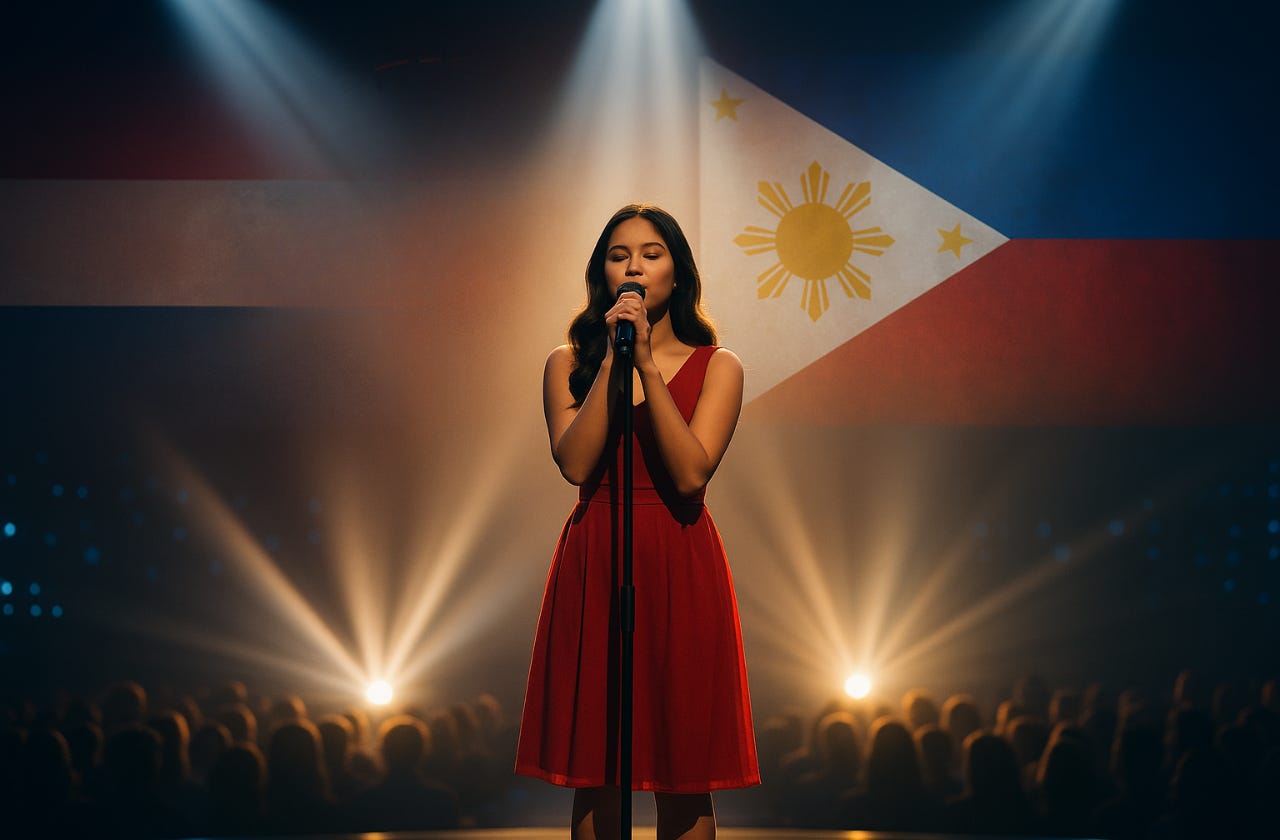Filipino Dream Behind Global TV Hits
What started as Dutch TV products became something far more personal in the Philippines.
The same TV show can become something totally different when it travels across cultures.
Business vs. Dream
For Filipinos, having a talent is a ticket to a better life, but what happens when a show about dreams comes from a country that sees it as a business?
As a Filipino and a writer living in the Netherlands, I’ve had a front-row seat to the Dutch perspective. I’ve collaborated on this article with Thomas Plaatsman (Cultural Reads), bringing his Dutch perspective into a deeper exploration of business versus aspiration.
When I was 15, I went to an audition for Pinoy Big Brother (PBB) with my sister. It was a huge event, so big that we camped out overnight just to get a spot. The energy was electric because for us, getting on the show was a chance to make our dreams come true.
For a nation where many people go abroad to help their families, these shows are a way to succeed right at home. And no, I didn’t make the cut!
While we saw it as a path to a better life, PBB is, at its core, a reality show, and it has all the drama you’d expect. The housemates fight, fall in love, and get caught up in scandals, making it feel just like a real-life soap opera.
My collaboration with fellow writer and The Hague resident Thomas here has helped us explore this fascinating cultural difference. When I first told Thomas the story of camping out for a TV audition, he stared at me blankly.
For him, the original Dutch Big Brother was a simple television product, a business of manufactured drama. For me, it was a spiritual quest for a better future. This profound, immediate contrast became the entire focus of our work, realising that the same show title held two radically different meanings across 10,000 kilometers.
In the Netherlands, the original Big Brother was completely different. There, it was a TV product, a business designed to create drama. The show was known for scandals and putting normal people in crazy situations.
Unlike in the Philippines, where the shows are about talent and hope, the Dutch version was seen as a bold experiment, not a vehicle for dreams.
The clever creators of shows like Big Brother (1999) and The Voice (2010), Joop van den Ende and John de Mol, saw entertainment as a global product.
The Netherlands is a small country, so it had to look beyond its borders to succeed.
Their secret was a simple playbook. They would first test a show in the Netherlands, then design it for universality by using simple themes, such as competition. Finally, they would sell the idea, not the show. They essentially created a TV show “recipe” that could be changed to fit any culture, which is precisely why it worked so well here.
From The Voice to the World
For Filipinos, music is so much more than a business. It’s a huge part of our culture. Karaoke is at every party, and singing is a passion that can lead to a better future.
When The Voice of the Philippines came out, it was an instant hit. It gave talented singers a chance to share their gifts with the world. While the adult version of the show has been on hold, it continues to thrive with The Voice Kids and The Voice Teens, with a new season of The Voice Kids PH currently in its latest season since September 2025.
Filipino Talent on the Global Stage
Filipino talent has also found its way onto the global stage. Sofronio Vasquez III, a singer who didn’t get a single chair turn on the Filipino version of the show. He didn’t give up. He later auditioned for The Voice USA and ended up winning!
Sofronio’s win wasn’t just his… it was a vindication for every talented Filipino who felt overlooked. It proves our core belief: that Filipino talent transcends borders and formats. Even the Dutch ‘recipe’ can’t contain the force of our heart. It just gives it a new venue.
We are only redirected, never denied, and sometimes, redirection leads to the biggest stage of all. Your dream might not happen the way you first imagined, but if you keep working hard and stay true to yourself, it will find its own way.
We also discovered that Filipinos and half-Filipinos living in the Netherlands have auditioned for The Voice and The Voice Kids here, bringing that same passion to the Dutch stage.
In 2014, Katrina Manaog, a young Filipina raised in the Netherlands, impressed the judges and advanced all the way to the finals of The Voice Kids Holland. And Isabella Lepping, who is half-Filipino and half-German, turned two chairs on The Voice of Holland, showing her pride in her roots.
Even the original Dutch version of the show is making a comeback, with The Voice of Holland returning in January 2026, followed by The Voice Kids Holland later in the year, after a four-year break.
As of 2025, The Voice has seen over 150 adaptations, and Big Brother has produced more than 500 seasons around the world. These reality formats, first imagined in the Netherlands, have been reshaped by dozens of cultures over the last 20 years, but perhaps nowhere have they meant more than they do in the Philippines, where they’re not just shows, but stepping stones toward a dream.
When Culture Gives Business a Soul
In the end, the story of global TV isn’t just about who owns the format or where it began but about how audiences breathe meaning into it.
What started as Dutch ingenuity evolved into something deeply human in the Philippines: a mirror of our collective dreams, struggles, and hopes. Every song sung, every audition line, every moment of triumph on stage reflects the Filipino spirit that turns entertainment into inspiration.
This shows that while a TV show might start as a business idea, a culture’s passion can give it new life and an entirely new meaning. And that’s what makes our version of these global shows not just successful, but soulful.





